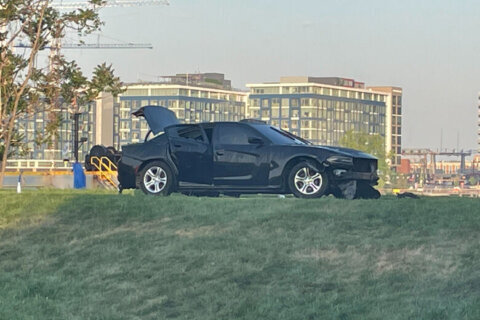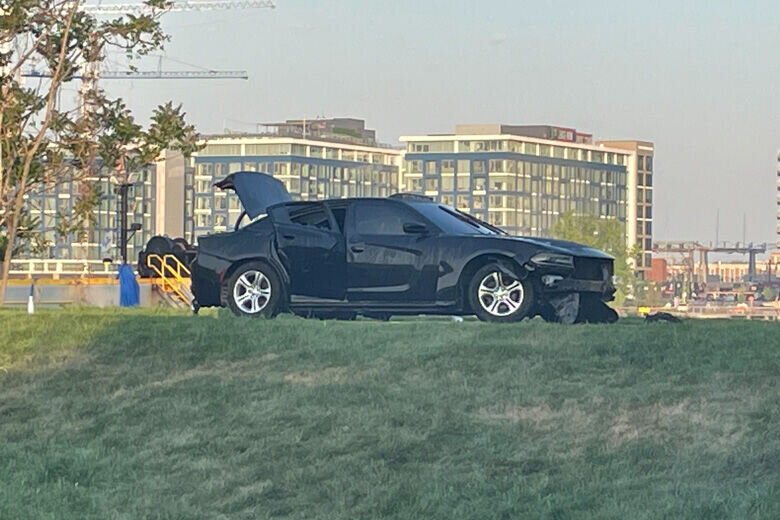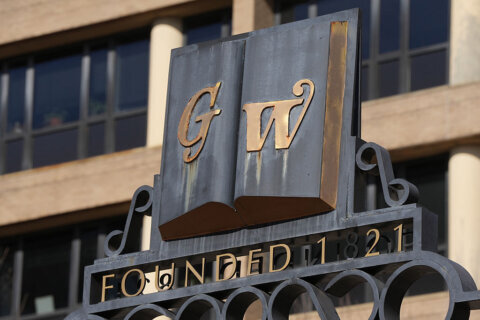
The D.C. Office of Unified Communications said that a 911 call to report a car that had driven into the Anacostia River was “coded properly,” despite D.C. emergency services not finding the drowned car until more than an hour after the incident was reported.
Metropolitan Police responded to a car plunging into the Anacostia River below the Frederick Douglass Memorial Bridge in Southeast D.C. on the evening of April 20, 2023, but emergency crews were initially dispatched to the 11th Street Bridge — located about a mile and a half away.
According to the OUC’s report, the 911 call came in at 10:26 p.m. and lasted two minutes. The reports said the caller was “initially uncertain of the incident location,” so location-determining technology was used to identify where the caller was on the Anacostia Riverwalk Trail.
The OUC call taker then consulted with MPD Harbor Patrol Unit and selected the incident location of the 11th Street Bridge “based on information” from the unit.
Police units arrived at the bridge at 10:30 p.m. and DC Fire and Emergency Medical Services’ units arrived four minutes later, according to the report, and it took about another five minutes for both units to learn that the incident actually took place at the Frederick Douglass Memorial Bridge.
The emergency dispatch finally arrived at the correct bridge at 10:42 p.m., according to the report. The police said the car was located by divers and emergency crews in boats at 11:45 p.m.
The bodies of the three people that were inside the Dodge Charger were found by the police later on.
An investigation of how public safety agencies responded to the incident was conducted by DC Homeland Security and Emergency Management, resulting in a report and improvement plan by the agencies involved.
The report that was sent to WTOP by OUC said that the location technology provided to the agency was used properly by the call taker and that the agency conducted an initial independent internal review 24 hours after the incident.
The areas of improvement highlighted in the report included improving real-time communication between responders from different agencies, using evolving technology and better training for how all emergency service agencies can work together.
D.C.’s 911 call center, operated by the OUC, has been criticized over the last two years for not meeting national standards for getting timely help to callers, including struggling to determine the location of emergencies.
The Office of the D.C. Auditor said in a October 2021 report that call takers were developing mistrust of the mapping tools used by the agency. In a review from September 2022, D.C. auditors said there had only been minimal progress on the long-standing issues in the OUC and that there were likely more mistaken address incidents than the agency reported.
Heather McGaffin, acting director of the OUC, said she was starting a “complete policy overhaul” of the agency when she was nominated to her position in February 2023. She said that would include 14 weeks of training for new employees and more supervisors supporting call takers on the floor.









